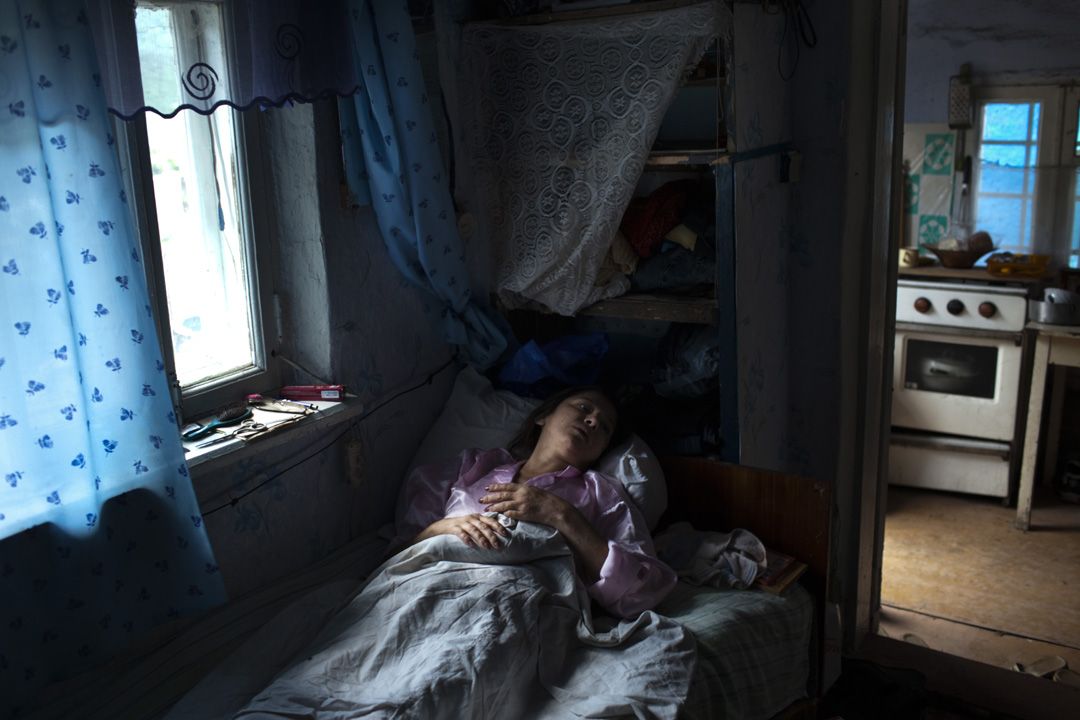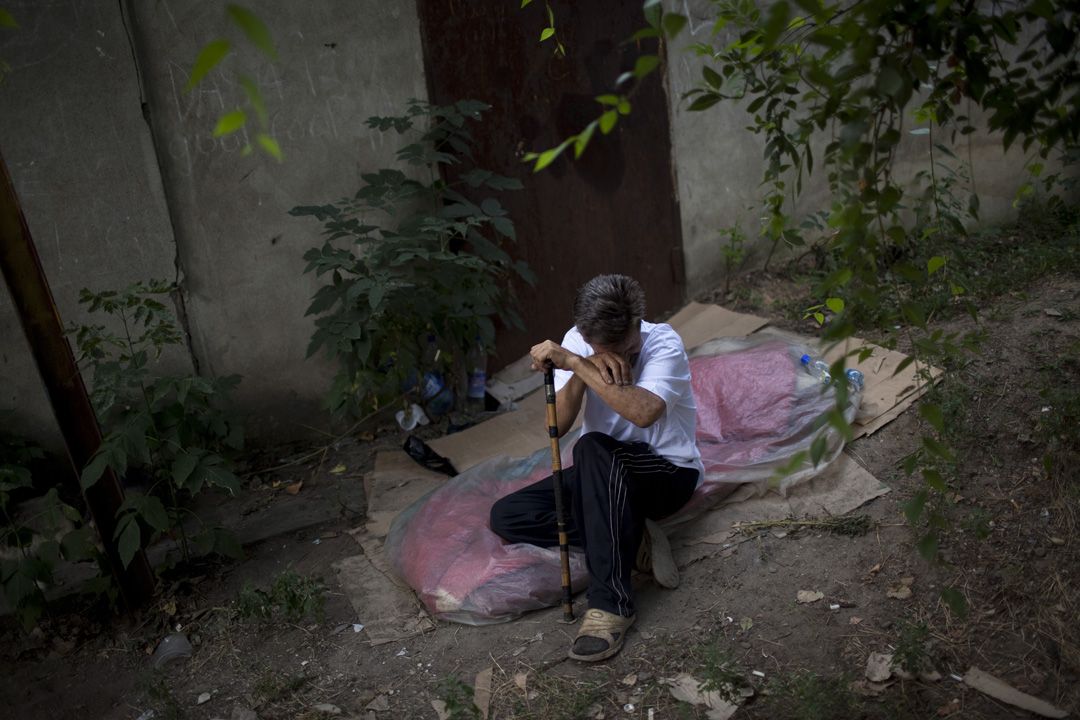Angela Orlov has multidrug-resistant TB and HIV and is so weak that she is often unable to get out of bed. She is thin and tired, and her health is rapidly deteriorating. She is trying to get admitted to the local TB hospital, but so far has been unable to do so. Every day Galina Zaporojan, a volunteer health worker with a local NGO, brings Angela her TB medicine to make sure that she is able to adhere to her treatment. Speranta Terrei, the NGO that Galina works with, is the only organization working in Balti, the town with Moldova's highest TB rate.
One of the biggest obstacles in the struggle to contain tuberculosis is finding ways that make it easy for patients to adhere to the often long and arduous treatment process. Even the mildest cases of TB require months of daily medication that can have uncomfortable side effects, and it is common for patients to skip days or stop the treatment altogether if they begin to feel better. This is a result of little awareness or education about the disease and its treatment, sub-par health care systems, and the fact that many of the patients live in difficult economic situations and sometimes must decide between getting to the hospital to take their medicine or getting to work to feed their family. Multidrug-resistant TB (MDR-TB) can arise when patients incorrectly take their treatment, or default altogether. These strains of the disease are deadlier than traditional TB and require longer and more difficult treatment regiments, making it even harder to ensure that patients adhere to the treatment for MDR-TB.
Dr. Valeriu Crudu, Program Director at the Center for Health Policies and Studies in Chisinau, says "in Moldova we have access to all the drugs, but we have a very low rate of success of treatment." It is estimated that 10 percent of all patients default on their treatment. Crudu attributes this mainly to little education about the disease and Moldova's huge migrant labor population, many of whom leave the country before they finish treatment.
But there is also very little patient support in Moldova. There are only three or four organizations, including Speranta Terrei, in the entire country that work on TB. Patients are almost always forced to make daily trips to the nearest hospital to take their medication. If a patient does not show up, doctors and nurses are tasked with finding the patient, but this is often a difficult proposition for already overworked staff. Moldova's MDR-TB rate is one of the highest in the world, and this is a direct result of poor adherence to treatment.
Among other activities, Speranta Terrei sends health workers like Galina to patients' homes to bring them their TB medicine and ensure that they take it. This is part of the DOTS Strategy (Directly Observed Treatment, Short Course) endorsed by the World Health Organization that is meant to have community or health care workers actually observe a patient take their medicine every day. It is thought to be highly successful.
The DOTS program does exist for out-patient treatment in the TB hopsitals in Moldova, but limiting the program to the hospitals limits it to those patients who are willing or able to get to the hospital. There are a variety of reasons, many listed above, that make it difficult for people in Balti to get to a hospital, and there are no small clinics closer to their homes that offer the service.
Speranta Terrei relies on a handful of workers who basically donate their time to visit patients and bring them their medicine, but they are unable to meet the great need that Balti has. They focus on the patients that come from particularly vulnerable populations who find it difficult to get to a hospital. In addition to Angela, Galina visits a homeless patient, a patient who is an alcoholic and lives in an apartment with no electricity and filled with trash, and a paraplegic man who lives alone. These are all patients who need assistance to successfully complete their treatment; the consequences for not doing so not only affect the specific patient, but also the community at large, who are put at risk of catching a deadly disease.
The TB rate in Moldova has been slowly decreasing or holding steady the past few years, but the rate of MDR-TB has been rising. It seems that without more support for organizations like Speranta Terrei, this trend will continue.



